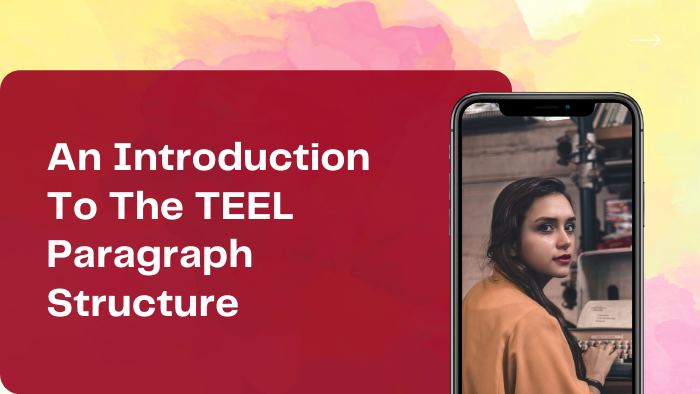
December 28, 2021
A Comprehensive Overview of Vroom's Expectancy Theory
No 1 Assignment Help
is only a click away.
A Comprehensive Overview of Vroom's Expectancy Theory
Employee motivation is a major concern for any organization's human resource management. Utilizes a variety of ways to encourage their staff and improve the business.
Motivation is important in all parts of life since it determines the amount of effort put in and the profitability measure. Philosophers and scholars have debated the importance of leadership in an individual’s personal ability to complete a task since antiquity. Over time, this contemplating has resulted in the development of many theories aimed at explaining motivational elements and improving an organization's effectiveness.
.png)
Here is the guide to A Comprehensive Overview of Vroom's Expectancy Theory where you will basic guidance on Vroom’s Expectancy Theory for your knowledge.
Vroom Expectancy theory: Meaning
Vroom's Expectancy Theory elucidates a person's social cycle while making a decision on which attribute to choose from among the others.
According to Vroom's Expectancy Theory, an individual will act in a certain way since they are encouraged to choose a socially constructed quality above other qualities they possess because of their need for the final product of the particular ideal, which would be beneficial to them in the long run. This idea explains the cycle that a person passes through while selecting an inspirational behaviour that is only based on the attraction of the end outcome.
It also explains that the woman's decision of behaviour is based on the impression of the connection between the person's endeavours, implementation, and accomplishment, which ultimately results in positive rewards for the individual. Experts frequently provide online writing aid to students who are studying this idea.
Vroom's Expectancy Theory's Important Elements
Because this theory suggests that a company's performance is determined by characteristics such as his or her experiences, expertise, mentality, aptitude, and skills, the vroom expectation theory also distinguishes between attempts, execution, and consequence.
Victor Vroom used three characteristics to determine how motivated an employee is. These are the factors:
- Expectancy
- Valence
- Instrumentality
Expectancy
Expectancy refers to an employee's belief that putting in more effort would result in better performance and, as a result, more production. However, an employee's expectation of a task is dependent on a few factors.
- The capacity to get the job done efficiently is referred to as a skill.
- Resources- Possess the required resources to complete the task.
- Help- Obtaining the necessary leadership and supervision from colleagues and task supervisors in order to assure the task's effectiveness and productivity.
Instrumentality
Instrumentality is described as an individual's belief that whatever task or outcome they are working on will lead to their objectives. This reward could be anything from job happiness to a rise in income, a transfer, or any other material benefit.
The incentives associated with employment are a common example of objective. Incentives are rewards that an employee receives in addition to his or her wage after accomplishing job-related duties. If a person performs much, the benefits they receive improve as well, increasing their value in the workplace.
The Following Things Influence a Person's Usefulness:
- People in charge of determining the appropriate amount and the person who receives the awards.
- The policies that are in place to regulate the correlation between performance and pay.
- The nature of the incentives and the recipients chosen.
Valance can be Classified into Three Types:
-1: Preventing a negative result
0: Unaffected by the result
+1: Applauds the Result
As a result, it enables an organisation to succeed, its personnel must have a favourable attitude toward incentives.
Motivation
The expectancy theory of Vroom characterises an individual's motivation as a product of expectation, usefulness, and expressiveness.
Expectancy x Instrumentality x Valence = Motivation
Each of the elements listed above is important in establishing an individual's level of enthusiasm for completing a task.
In the workplace, the vroom expectancy theory is used. Vroom emphasises the importance of setting expectations for the outcomes you want to achieve through your employees. You must tackle the aspects of the idea of anticipation if you truly want to encourage them to achieve your goals.
You can also seek Science Assignment Help from professionals who are highly skilled and have great expertise in guiding students with the assignments.
The Expectancy Theory's Benefits
- It is centred on the self-interest of people who want to increase their pleasure while limiting their suffering.
- Aspiration is emphasised in this strategy; genuineness and reality are unimportant.
- It emphasises the importance of rewards or compensation.
- It focuses on mental affluence, with the final goal of maximising pleasure while minimising suffering.
Expectancy Theory's Disadvantages
The expectation theory sounds utopian since many individuals feel there is a strong positive correlation between incentives and performance.
Because remuneration is not always executed effectively in many businesses, these economic theories application is limited. Other things that influence it include job role, effort, responsibility, retraining, and so on.
Expectancy Theory's Consequences
Management can connect the intended results to the required degree of performance. Managers must make sure that employees can achieve the appropriate productivity and quality. Employees who have gone above and beyond should indeed be acknowledged. The remuneration approach of a corporation must be fair and reasonable. Companies must design jobs that are fascinating, dynamic, and challenging. Employee productivity should be measured on a regular basis applying distinctive instruments such as interviews, conduct surveys, and so on.
Vroom's Theory of Expectancy has been criticised- Here’s why!
Experts in the same field who have developed comparable ideas on motivation have criticised the Vroom expectation hypothesis. The most well-known of these are listed below:
The one-dimensional aspect of vroom expectancy theory, according to Edward Lawler, who led to the formulation of Porter and Lawler's Theory of Motivation, is fairly deceptive because it presupposes that an employer will award employee achievement unambiguously. As a result, in order to earn the incentive, employees must raise their motivation and productivity.
The relationship between the favourability of rewards and performance is another part of Vroom expectation theory that has been criticised. According to the vroom expectation principle, incentives can only enhance performance if employees want them. However, because each person's needs and desires are unique, creating a cohesive management strategy is difficult.
Students can seek Science Assignment Help from online professionals. There are many online tutors who can guide students with the right methodology and guidance.
Related Blogs
Subscribe Our Newsletter & get Information about latest courses









